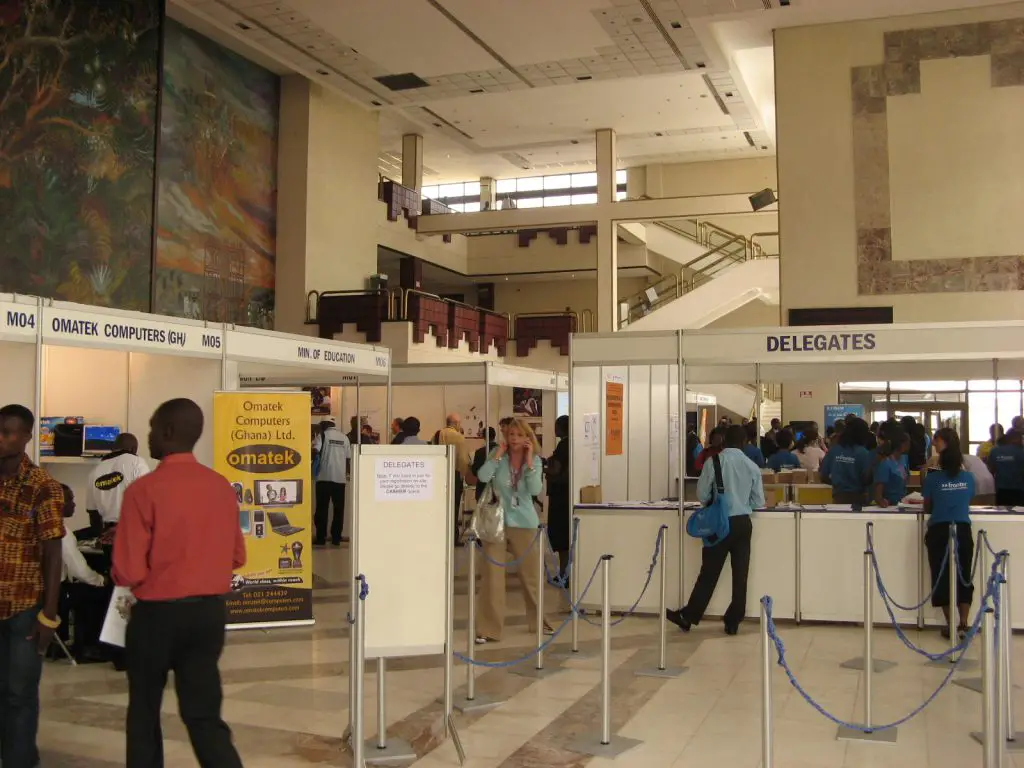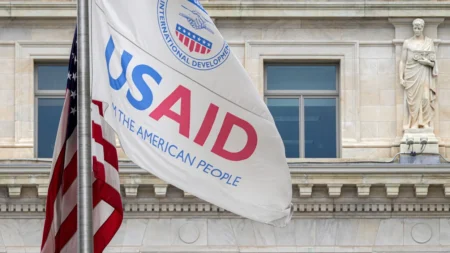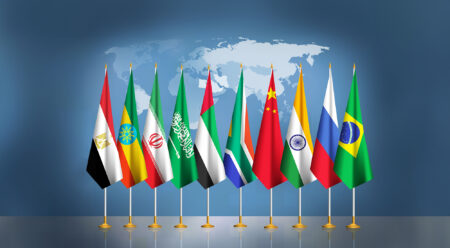- Ghana will host the largest agribusiness, food, beverage and processing exhibition from March 23rd 2022
- The event falls in line with President Nana Akufo-Addo’s vision of making agriculture pivotal to the development efforts in Ghana
- Agritech West Africa will offer exhibitors an opportunity to nominate buyers and partners they would wish to meet
Ghana will host the largest agriculture agribusiness, food, beverage and processing exhibition at the International Conference Centre in Accra from March 23rd to 25th, 2022. The event is supported by the country’s Ministry of Food and Agriculture. It falls in line with President Nana Akufo-Addo’s vision of making agriculture pivotal to the development efforts in Ghana.
According to Statista, agriculture contributed US$18.09 billion (19.25 per cent) to Ghana’s gross domestic product in 2020. The agricultural sector employs 60 per cent population, and 65 per cent of the land in Ghana is dedicated to this sector. The event has been organized by Agritech West Africa (AWA), a top exhibition company in India.
Agritech West Africa is an influential exhibition and marketing platform for companies in agriculture technology and machinery, agrochemicals, food processing, packaging, irrigation and systems, and all products related to agriculture and value addition targeting to connect partners and expand businesses in West Africa.
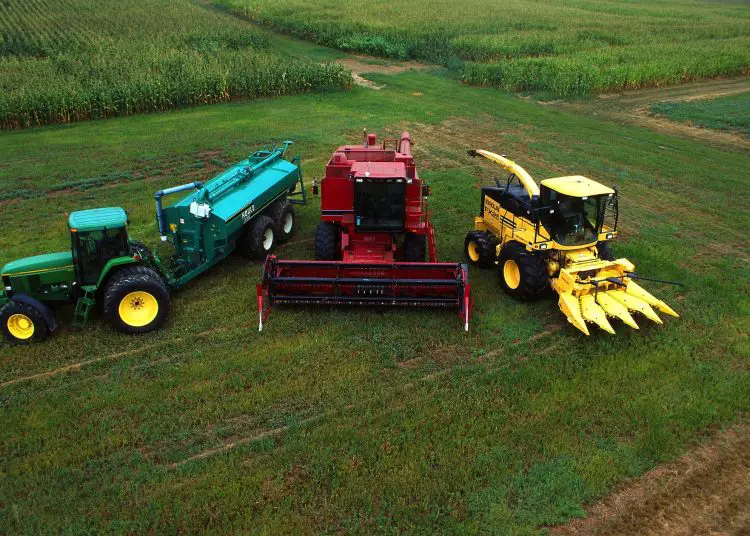
The three-day event will attract over 120 exhibitors from India, Ghana, South Africa and agribusiness companies from neighbouring regions and Europe. Over 6000 visitors in the agribusiness community in West Africa and more than 100 hosted buyers and potential partners will attend the exhibition.
Agritech West Africa will offer exhibitors an opportunity to nominate buyers and partners they would wish to meet.
Agriculture in Ghana.
West Africa is working towards achieving food self-sufficiency through mechanization in agriculture. Ghana is the regional hub and centre of business and Agriculture in West Africa and a ratified member of the African Continental Free Trade Area (AfCFTA). Ghana is also the fastest growing economy in West Africa.
Read: Africa: Opportunities and challenges of investing in Ghana and Ethiopia
Thomas James, Agritech West Africa’s project director, said that the rising demand for food and the targeted food growth in Ghana and West Africa requires innovation and mechanization in agriculture patterns. This could be done by adopting new and modern agriculture technologies, machines, crop care practices, irrigation, warehousing and storage facilities.
Ghana has invested heavily in mechanisation in agriculture, importing Tractors, Spares, Implements, Agrochemicals and Irrigation setups worth US$1 billion. Annually, Ghana imports over 10,000 tractors and their associated implements and parts.
The seminars, pre-fixed meetings and conferences in the exhibition will help Ghanaian and West African agriculture-based companies an opportunity to network with manufacturers and suppliers from across the globe.
“All the necessary arrangements had been made to observe the COVID-19 protocols to guarantee the safety and health of exhibitors, business operators and visitors,” Thomas James said.
The Ghana National Chamber of Commerce and Industry, Food and Beverage Association of Ghana, Association of Ghana Industries Chamber of Agribusiness and West African Agriculture Chamber have all welcomed and supported the exhibition.
The Food and Beverage industry in Ghana.
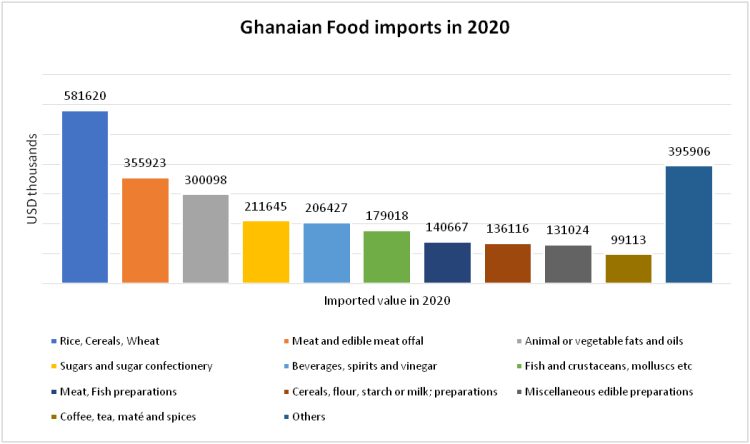
Despite Ghana centring significantly on agriculture, the country’s agricultural production cannot sustain its population and has to import commodities. In 2020, food imports in Ghana accounted for approximately US$2.7 billion, 17.1 per cent of the total imports during the year.
Vietnam is the largest supplier of food items to Ghana, contributing to over 14 per cent of the total imports, followed by Canada, Belgium, China, Malaysia, the USA and Russia. Thailand, Vietnam, India, and Pakistan are Ghana’s most extensive rice suppliers.
Rice and Cereals are the most prominent food imports in Ghana, accounting for US$581 million, followed by meat, fats and oils, sugar and processed food items.
The rising population in Ghana has seen an increase in the middle-class income community, which has increased the demand for processed food in the West African country. Processed food and edible constitutes contribute to about 50 per cent of food importation in Ghana.
Read: Ghana, Kenya top Fitch list for possible credit rating downgrades





